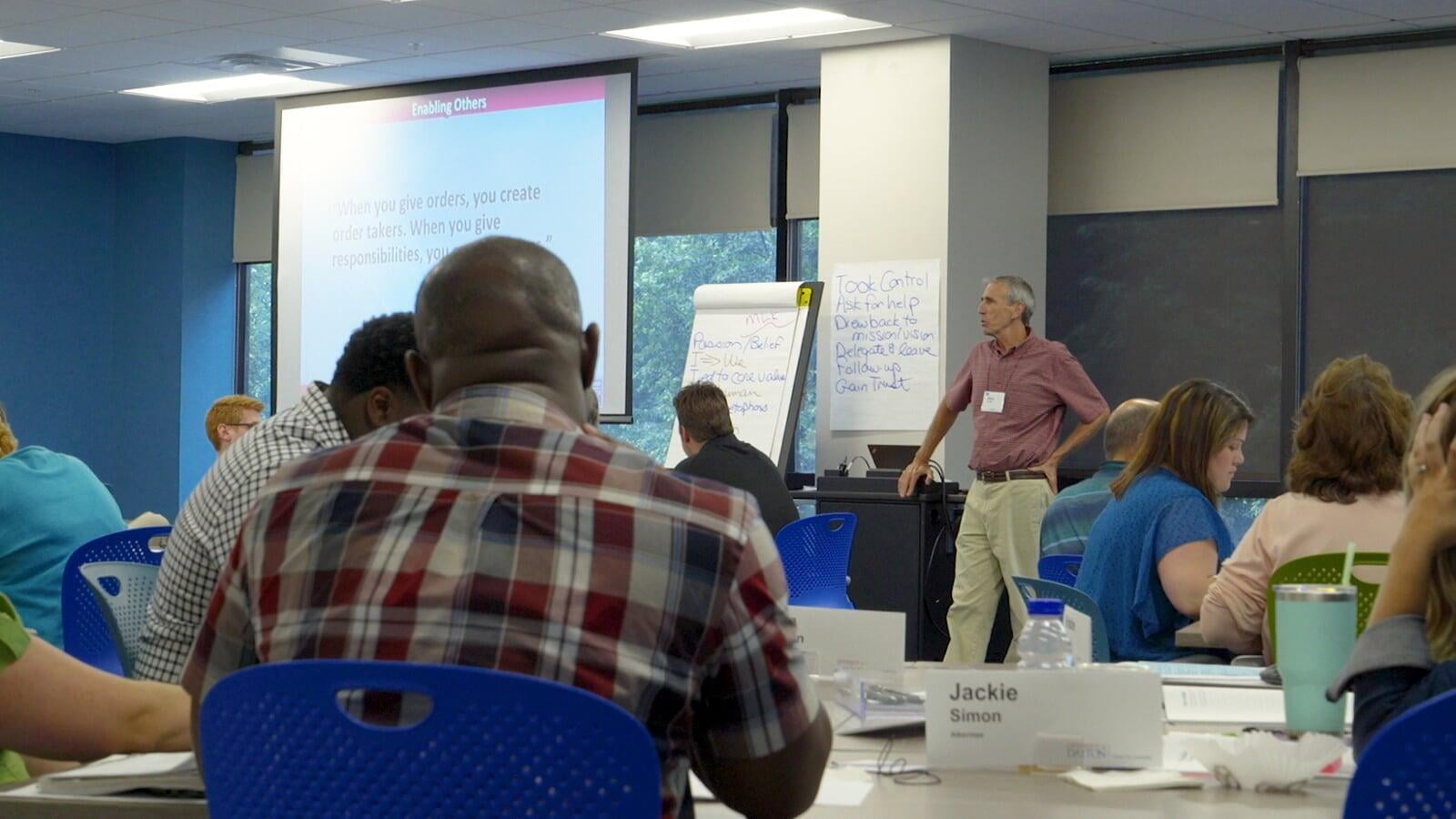
The Air Force Research Laboratory (AFRL) aims to further develop and re-energize its supervisory workforce to create a culture of innovation and risk-taking conducive to driving research from basic science to transformation military capability.
AFRL engaged Wright Brothers Institute to design a plan addressing this objective. WBI conducted the initial environmental scan of potential topics and relevant academic, Department of Defense and commercial developmental best practices. WBI found an experienced and proficient partner in the University of Dayton Center for Executive Leadership (UDCL), and went to work identifying subject matter experts in building a pilot program directed at mid-level supervisors.
In response to the United States Air Force Science & Technology Strategy, AFRL is taking a hard look at its Human Capital Strategy for the next decade and beyond. It’s clear that the scientific and technical workforce of the Air Force is the foundation to maintaining and accelerating our country’s technological advantage. According to then-Secretary of the Air Force Heather Wilson, “The advantage will go to those who create the best technologies and who integrate and field them in creative operational ways that provide military advantages.” (USAF S&T Strategy)
Studies have shown that the immediate supervisor is the most critical element in the development of employees. Good developmental experiences are typically the result of engaged and supportive supervisors.
A study undertaken by the School of Management, Jiangsu University, China, and published September 2020 by the Public Library of Science showed that supervisory behavior positively and significantly affects sustainable employee performance (SEP) and conflict management strategies (CMS). The study revealed that both person-oriented skills and task-oriented skills of the supervisors have significant impacts concerning SEP and CMS. Person-oriented skills such as recognizing and rewarding good performance, willingness to listen to employees' problems, and treating employees with respect affect SEP positively. Also, the task-oriented skills of a supervisor, such as setting specific goals for employees, emphasizing high standards of performance for individual employees and team, significantly affect the SEP and CMS.
After the initial research and source identification, WBI and UDCL conducted and facilitated several workshops with AFRL personnel from across the enterprise, including the primary AFRL point of contact Dr. Heather Marshall, Chief Learning Officer for AFRL. WBI then secured UDCL to essentially run the program once it was off the ground. UDCL’s experience conducting a beginner supervisory course at AFRL made them exceptionally well suited to run the ten-month effort.
To date, the project is approximately one-third complete, with 24 AFRL supervisors having participated in the pilot effort. WBI will continue to oversee the project as it approaches the June 2021 graduation, in addition to gaining student input on improving the project in the future.
``````````````````````````````````````````````````````````````````````````
